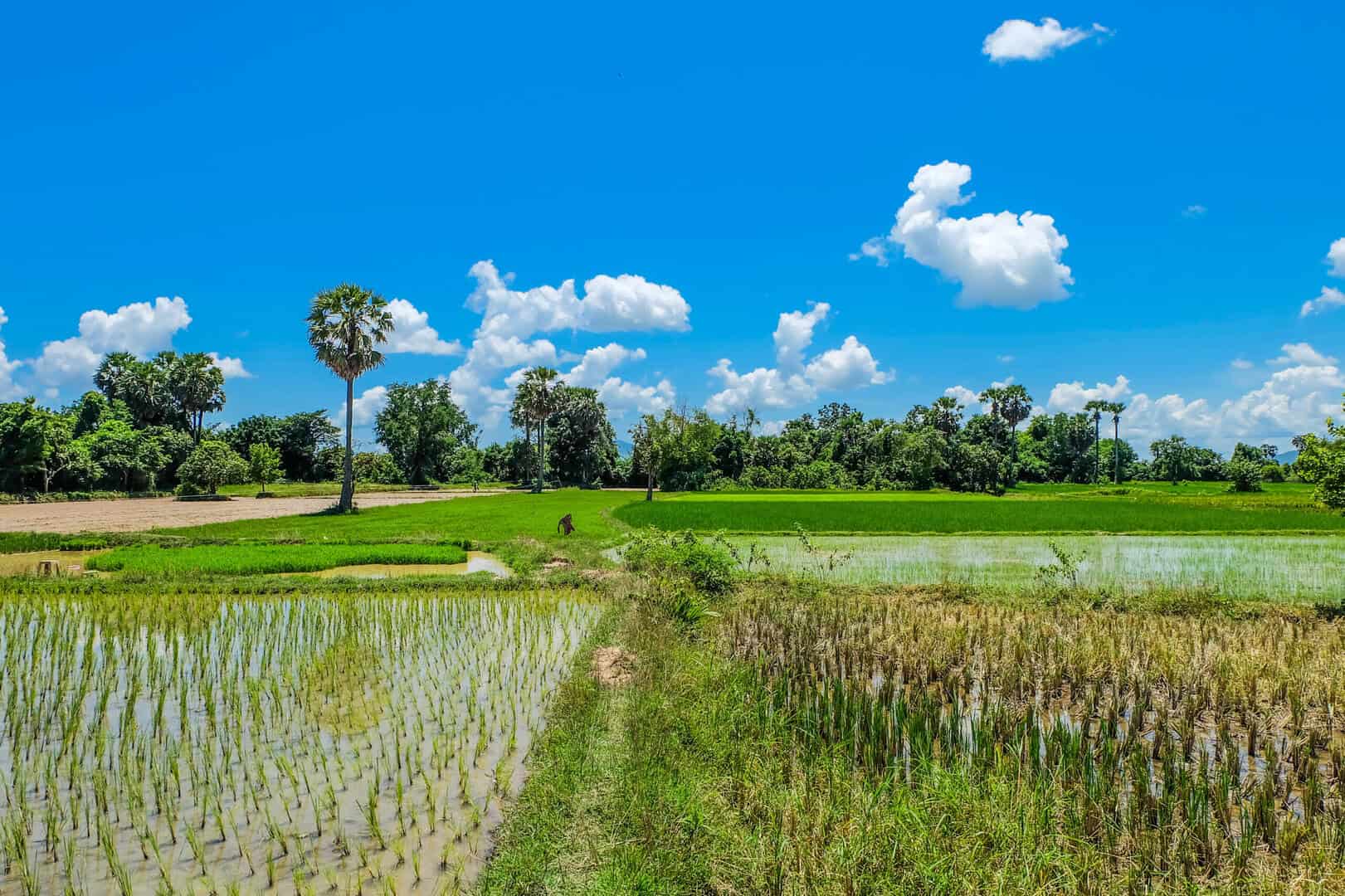
HUSK’s Revolution in Farming: The Quest to Empower Farmers and Revitalize Soil
Authors: Heloise Buckland and Carol Rius, Founders of HUSK
August 28th, 2024
———
It was an annual gathering in a remote village in Cambodia. Everyone was dressed up and in a festive mood, the air buzzing with laughter and the scent of celebratory feasts. Among the crowd, a woman farmer stood out with pride in her eyes as she clutched the prize she had just won. Though she could barely read or write, she spoke with newfound confidence:
“HUSK gave me the knowledge to improve our soil, and now I’m someone important here,” she said, her voice filled with pride.
She is a smallholder farmer, struggling like many others with poor soils and low yields, but today, she was a leader, promoting solutions for soil health in her village. As one of the recently trained HUSK’s superfarmers, she promotes HUSK products supporting thousands of smallholder farmers in Cambodia to transform their livelihoods through regenerative farming practices. That moment encapsulated everything Heloise and Carol had envisioned when they first embarked on their journey to create HUSK.
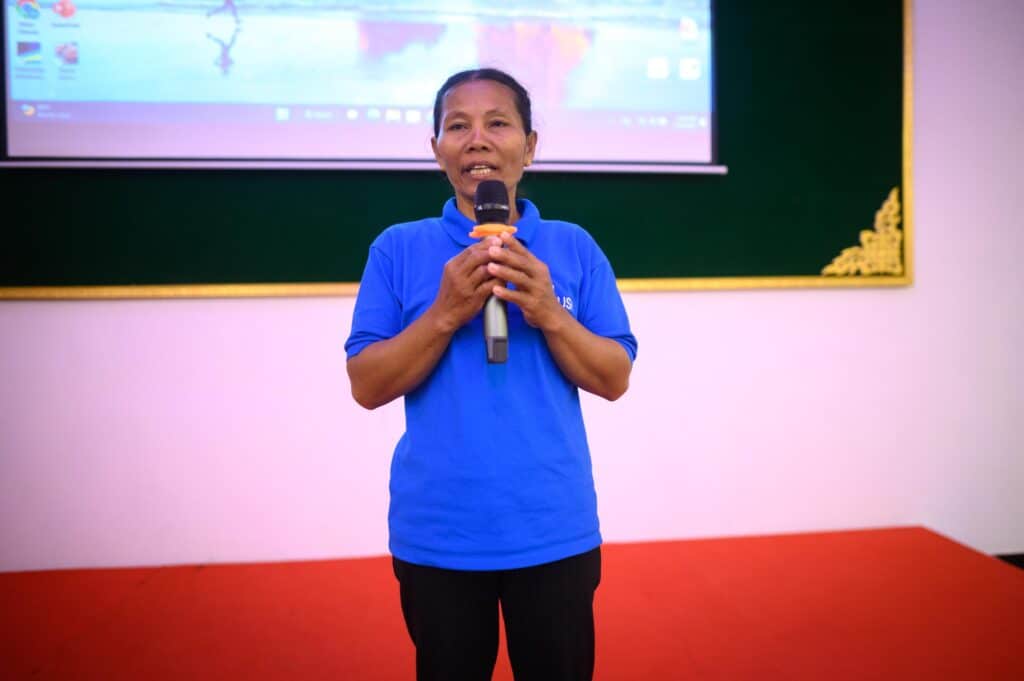
Rien Sophy – one of the trained HUSK’s superfarmers, from Human and Hope Association in Siem Reap, at an annual gathering.
Let me take you back to how it all began.
—
Two Entrepreneurs, One Vision
Heloise and Carol’s paths crossed at a pivotal time in their lives. Both were driven by a deep desire to make a tangible impact on the world. Heloise, with her extensive background in social innovation, education and sustainability, had spent over 15 years running education programmes and research on climate change and social innovation, but felt that something was missing—a direct impact on communities rather than teaching others. Carol, on the other hand, had spent over a decade supporting European companies doing business in India. Her passion for social equality fueled her desire to help these companies bring technologies that could improve lives. However, after years of consulting, Carol felt an overwhelming need to create something of her own.
“Instead of just doing consultancy for companies, I wanted to focus on something tangible—something that I could grow and see develop,” she explains.
It was as if two seemingly different puzzle pieces had found their perfect match—Carol’s expertise in international business and Heloise’s in sustainability.
Over coffee and countless discussions, they realized their paths were not just converging but intertwining as their focus naturally turned to smallholder farmers—often overlooked yet essential to feeding the world. For Carol, the deeper purpose behind their venture was clear: social justice. She wanted to ensure that smallholder farmers could earn more, gain empowerment, and live with dignity. Heloise, on the other hand, was driven by an environmental mission: “These farmers are among the hardest hit by climate change, and we knew we had to provide them with the tools to thrive.”
Together, they envisioned a business that would address the needs of smallholder farmers while promoting sustainability and tackling the challenges of climate change. The foundation for HUSK was laid, fueled by their shared vision and purpose.
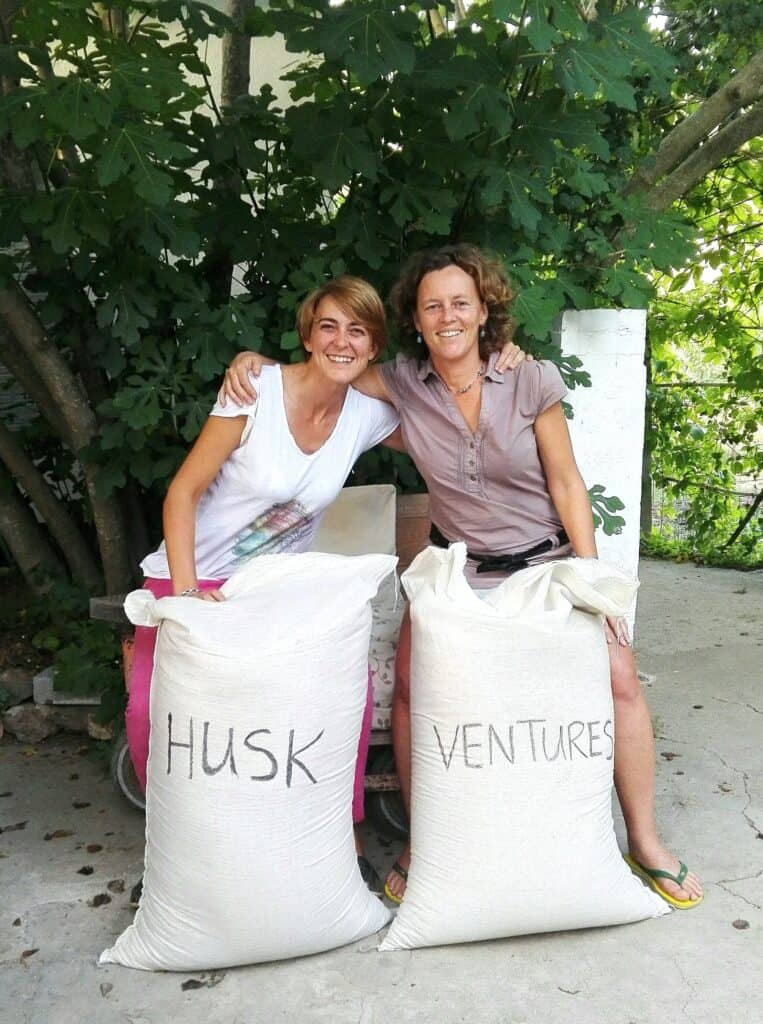
Heloise (right) and Carol (left) in Barcelona, 2017
A Global Quest for a Local Solution
Heloise and Carol embarked on the challenging journey of building HUSK by exploring various biomass sources that farmers had in abundance but were typically of low value. Among these, rice husk, with its staggering annual production of 150 million tons, stood out. “This waste was often burned or dumped, causing pollution without adding any value,” Carol noted.
Their quest to find a sustainable use for rice husk took them around the world. They investigated potential applications—furniture, compost, chopsticks, and cups. “We searched globally for so many different rice husk applications. We even tried making rice husk pellets for cookstoves in my garage.” Heloise recalls. Despite their best efforts, the solutions they explored weren’t the breakthrough they needed.
The turning point came in 2018 during their second visit to Cambodia. A Dutch biofuel consultant introduced them to the concept of biochar, something neither had considered. “Biochar? I didn’t even know what biochar was,” Heloise admits. But as they researched further, they discovered that biochar—created from rice husk through a process of thermal pyrolysis—was a traditional technique used by farmers for centuries to improve soil quality. “This humbling moment made us realize that if we had asked the farmers from the beginning, they would have told us they used to make biochar,” Heloise reflects.
This revelation brought a moment of profound clarity. They quickly shifted their focus to biochar production.
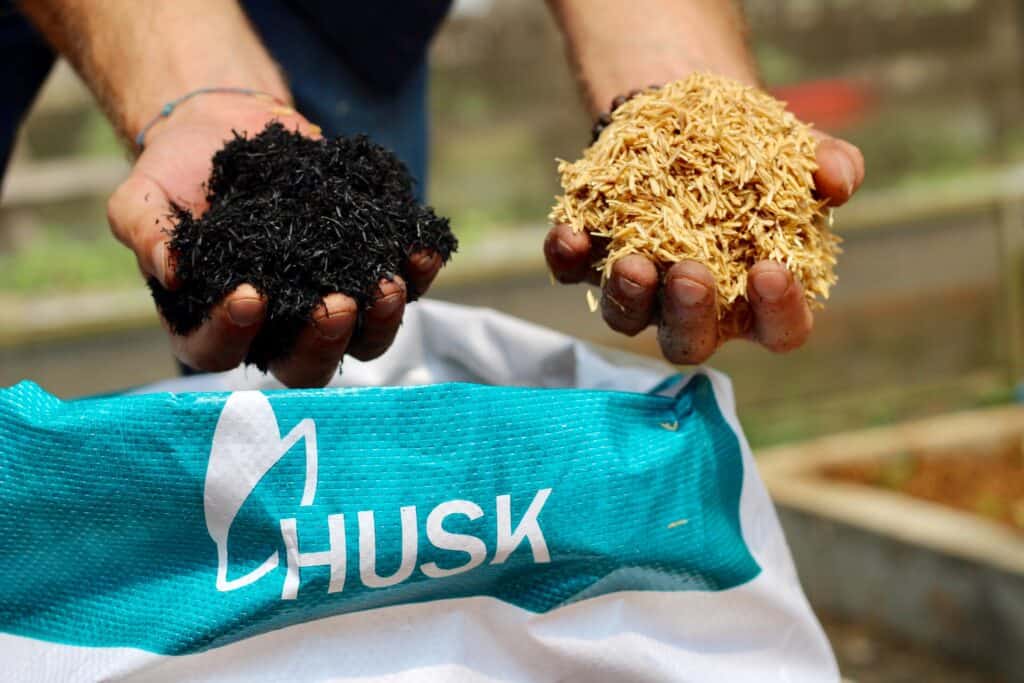
Biochar and rice husk
From Trials to Triumph
Building HUSK was a true test of resilience and innovation, pushing the boundaries of what’s possible in sustainable agriculture. Traditionally, farmers have made biochar by burning rice husks in open piles—a process that not only releases harmful emissions but also takes a lot of time and yields inconsistent results. HUSK saw an opportunity to revolutionize this age-old practice. They wanted to introduce a cutting-edge pyrolysis process that produces biochar with precision and consistency while drastically reducing environmental impact.
Carol found a pyrolysis manufacturer in Vietnam, and Heloise moved to Cambodia to oversee the installation of this first machine and set up the business. “It wasn’t an easy time, as no one else had made technology work with rice husk; we also had to find a rice mill partner and build a local team,” Heloise shares. HUSK’s pyrolysis facility in Cambodia uses rice husk to produce biochar based fertilizers, which farmers use to enhance the health of their soil, leading to better crop yields, lower input costs over time and more sustainable farming practices.
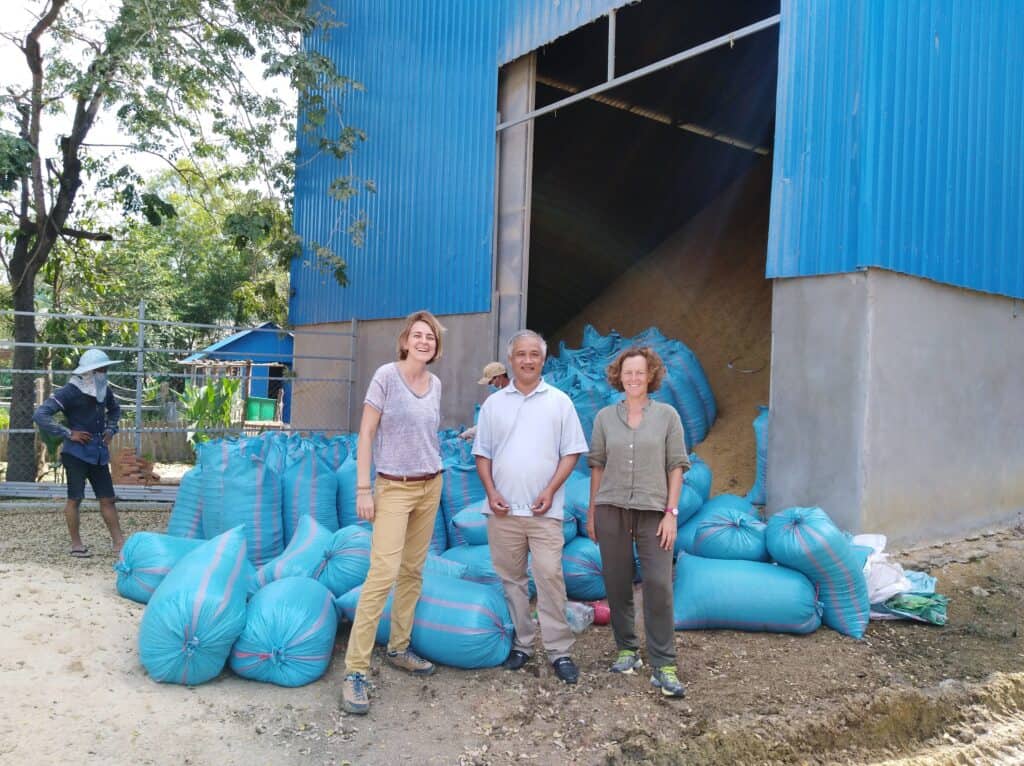
The two entrepreneurs with Mr. Le Viet Vinh at the first production site
The journey was far from smooth. The first major challenge was transporting the machine from Vietnam to Cambodia, which turned into a logistical nightmare. The first truck was too small, the second was too heavy. “We had to try three times before finally getting the machine across the border,” Heloise recalls.
Finally, after overcoming the transport hurdles, they faced yet another obstacle—the machine wouldn’t fit through the door of the rice mill. Undeterred, Heloise, Carol and the team literally hand-carried the one-ton pyrolysis machine piece by piece into the building. But just when they thought the worst was behind them, as Heloise pressed the button to start the machine for the first time, an explosion rocked the facility. Fortunately, no one was hurt, but the unexpected setback added to their growing list of challenges.
Despite the rocky start, biochar production finally began in 2019. Their first sale to an NGO (Non-Governmental Organization) was a significant milestone, and the first crop trials showing sustained increases in yields signaled that their hard work was paying off.
But just as they began to gain momentum, the COVID-19 pandemic struck, throwing them into the deep end of remote management. Heloise had to manage operations from afar while trying to sustain team morale and keep the business afloat. “Every week there’s a new sprint to overcome the latest hurdle,” she recalls. The relentless challenges tested their endurance, but they refused to give up.
In 2022, they faced a critical decision. Their existing rice mill and pyrolysis unit were no longer enough to meet the growing demand. To scale up quickly, they moved to a larger rice mill and, with the help of local engineers, reverse-engineered a new pyrolysis unit in Cambodia. This bold move doubled their production capacity and reduced costs, allowing them to offer more affordable products to farmers.
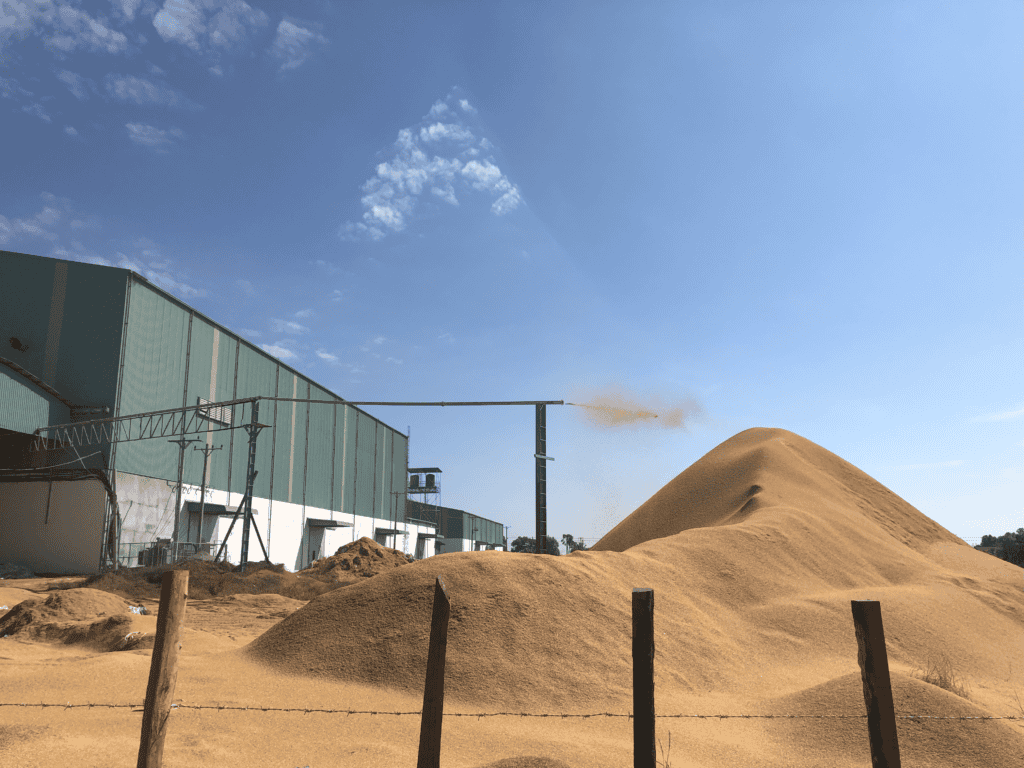
Rice husk at HUSK’s production site
Their relentless pursuit of innovation led them to partner with an Australian company, securing advanced technology, carbon credit certification, and funding from the UK.
Along the journey, they discovered that farmers don’t just need biochar—they need carbon-based fertilizers. Therefore, HUSK embarked on a process of blending biochar with other nutrients to create granular fertilizers and liquid products, tailored to the needs of specific crops and farmer challenges.
This new line of carbon based fertilizers could revolutionize farming practices and over time enable soils to thrive independently of chemical fertilizers. To date farmers using HUSK products have reported a 15-20 percent yield increase, a reduction in chemical fertilizer use of up to 50 percent, both resulting in a net revenue increase of 10-20 percent.
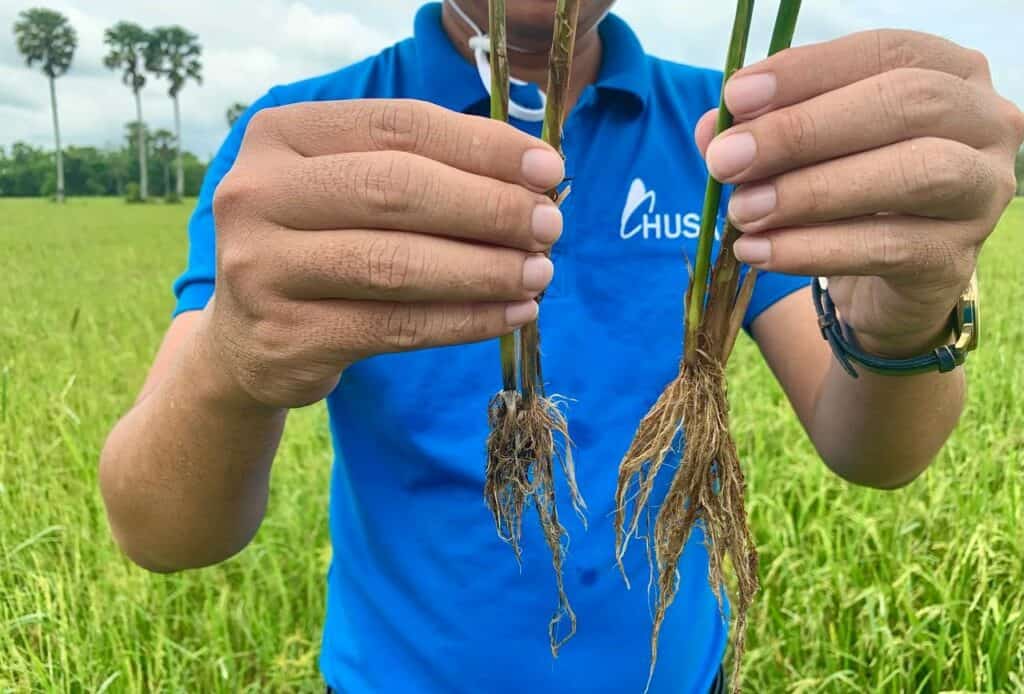
HUSK products benefit rice with stronger roots, thicker stems and more drought resistant soils, all resulting in higher yields and improved rice quality. The crop on the left was from a field using chemical fertilizer only, the crop on the right was from a field using HUSK protocol. Photo: Mat Snavy @HUSK in Prey Veng, Cambodia.
Reviving Soil, Uplifting Livelihoods
“HUSK gave me the knowledge to improve our soil, and now I’m someone important here.” The endorsement of the Cambodian female farmer echoed the vision that Heloise and Carol had when they first started: to empower smallholder farmers, build climate resilience, and make a lasting positive impact on the world.
Reflecting on their journey, Carol shared, “Seeing the joy in farmers, especially the women we’ve trained, validates everything we’ve done.” Heloise added, “The opportunity ahead for HUSK is huge, we have developed solutions that will equip farmers to face the increasingly critical challenges around soil degradation and climate change and I am excited about our next growth phase.”
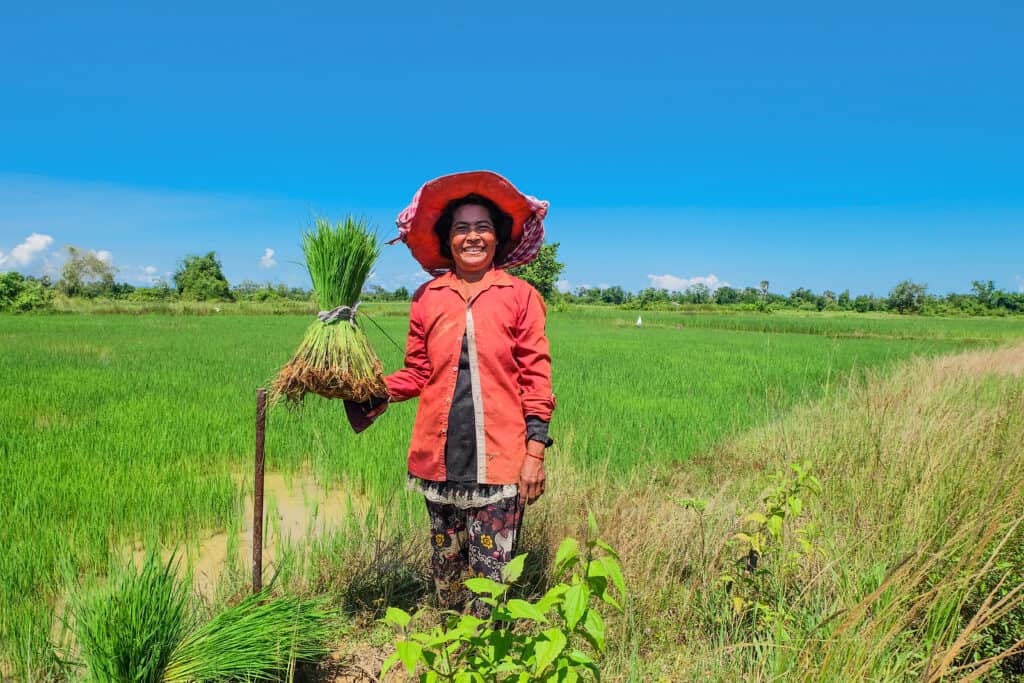
Rice farmer, Kampong Speu, Cambodia 2022
Today, HUSK is more than just a company; it’s a pioneering example of the social and environmental change that is possible when two individuals come together to dream big and work tirelessly to turn that dream into reality. Through their unwavering commitment and relentless pursuit of their vision, Heloise and Carol are making a real difference—one farmer at a time.
Click below to subscribe to Mekong Capital’s quarterly newsletter.
Mekong Capital makes investments in consumer-driven businesses and adds substantial value to those companies based on its proven framework called Vision Driven Investing. Our investee companies are typically among the fastest-growing companies in Vietnam’s consumer sectors.
In January 2022, Mekong Capital founder Chris Freund published Crab Hotpot, a story about a bunch of crabs who found themselves stuck in a boiling pot. The colorful cover of “Crab Hot Pot,” complete with expressive cartoon crustaceans, looks like a children’s tale at first glance. But as one continues reading, it becomes clear that the work has an important message about organizational transformation, leadership and focusing on a clear vision for the future.
The book is available on Tiki (Hard copy): bit.ly/38baF8a (Vietnamese) and Amazon: amzn.to/3yWunzG (English)




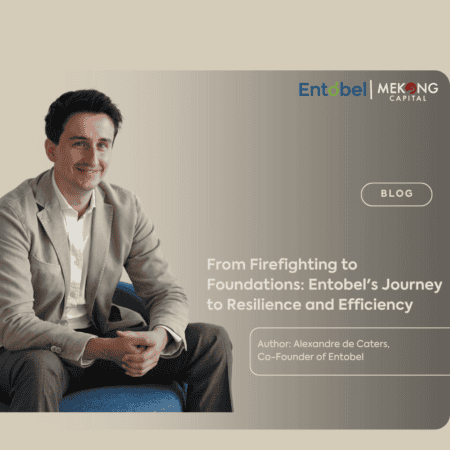

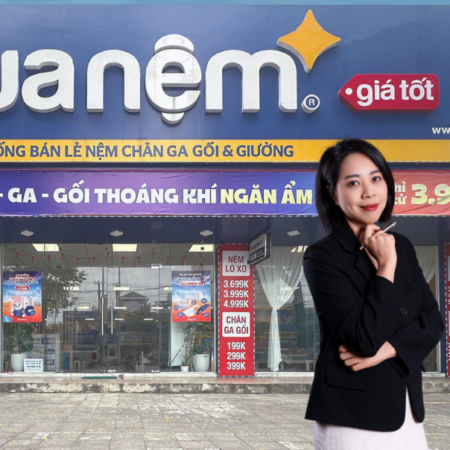
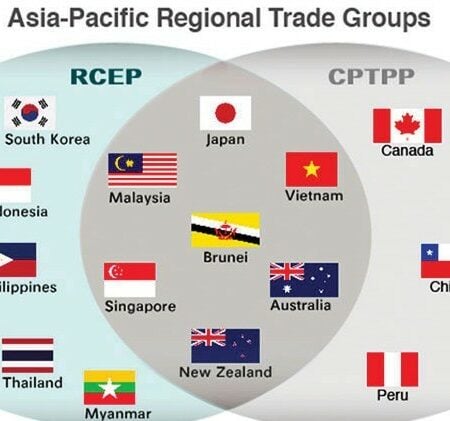
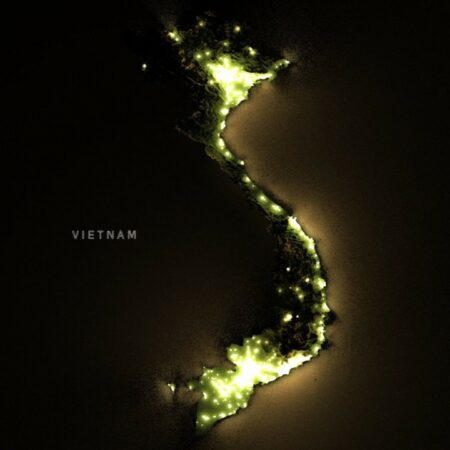
Leave a Reply